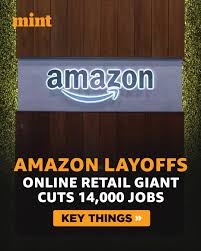The Impact and Importance of Chain Stores in Today’s Retail

Introduction
Chain stores have become a hallmark of modern retail, offering consumers a wide range of products and services under a unified brand. Their growing presence has transformed the shopping landscape, providing convenience, consistency, and often lower prices due to economies of scale. As both consumers and business owners adapt to the recent shifts in shopping habits influenced by the pandemic, understanding the relevance of chain stores is more critical than ever.
Current Trends in Chain Retail
According to the latest data from the British Retail Consortium, chain stores in the UK accounted for approximately 60% of all retail sales in 2023, marking a steady increase as they recover from the economic challenges posed by COVID-19. Well-known brands like Tesco, Sainsbury’s, and B&Q have expanded their market presence, investing in technology to enhance the shopping experience through online platforms and improved logistics. The rise of e-commerce has pushed many chain stores to adopt hybrid models integrating online and offline shopping successfully.
Adapting to Consumer Preferences
In response to changing consumer preferences, chain stores have been diversifying their offerings. For instance, many have added organic and sustainable products to cater to an environmentally conscious demographic. Recent surveys indicate that 73% of consumers are willing to pay more for products from sustainable brands, prompting chains to adjust their inventories accordingly.
Challenges Facing Chain Stores
Despite their robust performance, chain stores are not without challenges. Inflation and supply chain disruptions have caused rising costs which they must navigate carefully to maintain competitive pricing. The shift towards online shopping has also led to increased competition from direct-to-consumer brands that can offer lower overhead costs. Furthermore, the trend towards local shopping has gained momentum, as consumers increasingly seek to support local businesses over large chains.
Conclusion
The future of chain stores in the retail market appears promising, yet it will require adaptability in the face of evolving consumer behaviours and economic circumstances. Industry experts forecast that chain stores that successfully integrate sustainable practices and leverage technology will continue to thrive. As consumers increasingly value convenience and diverse product offerings, chain stores must remain vigilant and responsive to upcoming trends to sustain their market dominance. For readers, staying informed about these shifts is essential, whether as consumers looking to make mindful purchases or as entrepreneurs aiming to navigate this dynamic retail landscape.
You may also like

The Impact of Mladen Zizovic in Today’s Business Landscape

Understanding the Recent Amazon Layoffs and Their Impact
